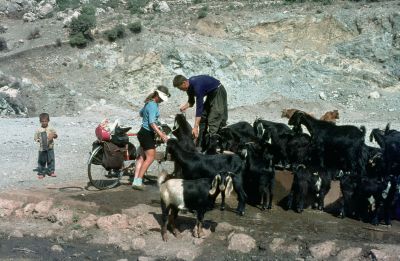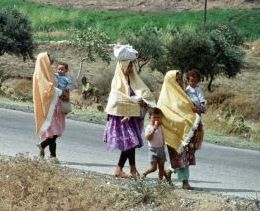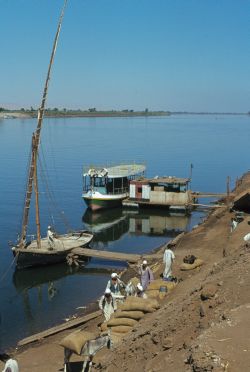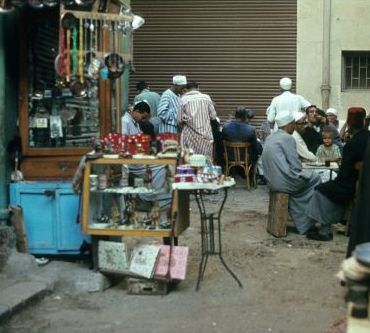| home | site map | world | children | recent | cooking | dutch | german | react | ||||||||||||
Netherlands - Egypt 2 (1972).

Eastern Turkey: Good drinking water was often rare on our travels.
S
yrians pleased us unexpectedly by being a very courteous and friendly people, very interested in our opinion about their Middle East war. The country was a pleasant mixture of many lifestyles and ways of dressing. We saw a woman heavely veiled. walking with her daughters in miniskirt or a nomad shopping with two of his wives, a happy family.
Syria: A mixture of cultures and religions; sometimes several wives in one family.
Of course we couldn't cycle to Egypt as we had to cross Israel (both being at war at that time) and so we to take a ship. It was a Russian liner, who sailed via Cyprus, still quiet at that time. To us the Turk-Cypriots looked much better of than Turkey, why would they be striving to join mainland Turkey, we wondered.
Once in Egypt we discovered another result of the war: no foreigner was allowed to travel by road (the entire country was declared military area). Only tourist sights were allowed to be visited by train or plane and the road from Alexandria to Cairo was open for non-stop traffic. For a bike it meant two days though. We started off, got through all the checkpoints and arrived in the evening in a city halfway. No troubles so far. When already nearly asleep in our hotelroom, we were called out of bed and taken to the police office, because we had no permission to stay there.

Egypt: Work was often done as in Pharaon times, whether reconstructing tempels or transport.

Egypt: Chatting, drinking coffee and discussing with us the problems of the war.
Egyptians are talkative people and a lot of time we spent chatting to the camel-drivers, government officials, post office employees and the many friends we made.
All had one opinion: they were sick of the war and wanted peace, including the soldiers.
We cycled around the pyramides and to the impressive tempels and pharaograves, but the rest of this enchanting country we had to do by train. In the south both road and railway ended and the only way to cross the pure dessert in order to reach Sudan, was sailing the new Lake Nasser (Asswan dam).
| Site map (nl) | Around the world | Previous | Next page | |||